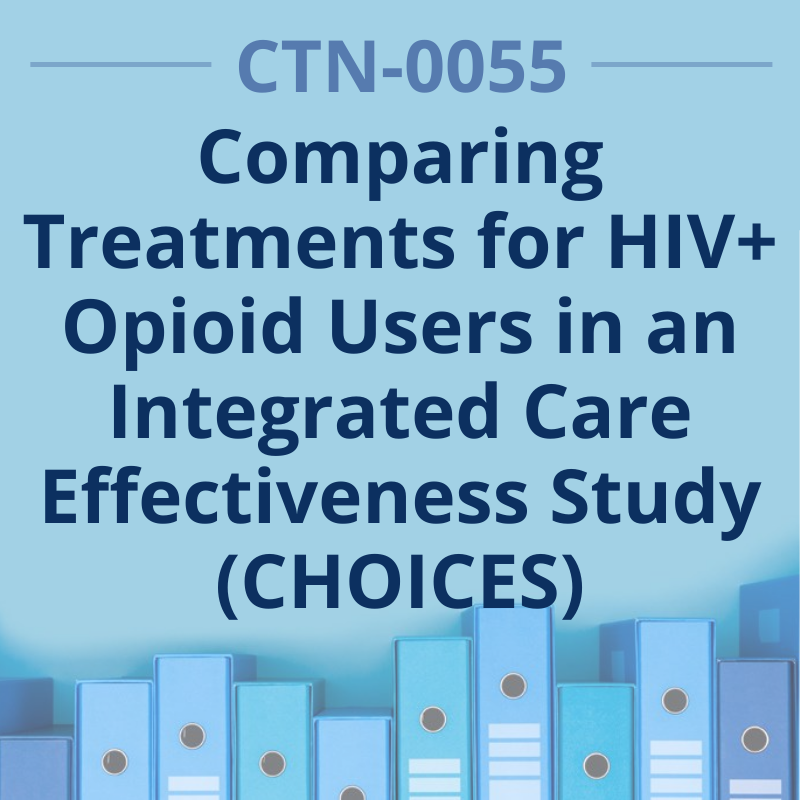CTN-0055: Comparing Treatments for HIV-Positive Opioid Users in an Integrated Care Effectiveness Study (CHOICES)

Todd Korthuis, MD, MPH
Oregon Heath & Science University
korthuis@ohsu.edu
HIV-infected patients receiving office-based treatment are more likely to achieve HIV viral suppression, decreasing the overall community viral load and associated HIV incidence. Injection drug users are least likely to engage in HIV care and achieve HIV viral suppression compared to other HIV risk groups. Substance abuse treatment can increase engagement in HIV care, but HIV providers have limited options for long-acting office-based addiction treatments. This study will compare extended-release naltrexone to treatment as usual for opioid dependence in approximately 400 HIV-infected patients.
Primary Findings
Extended-release naltrexone (XR-NTX) is feasible and safe for treatment of opioid use disorder and alcohol use disorder in HIV clinics. Treatment initiation appears to be lower and retention greater for XR-NTX compared with treatment as usual. The findings underscore the need for a multi-site trial to test the potential of XR-NTX for improving engagement in the HIV care continuum. Use of long-acting addiction pharmacotherapies such as XR-NTX may improve the capacity for HIV-infected patients with substance use disorders to better engage in HIV treatment and close gaps in the HIV care continuum.

Primary Outcomes Article: Korthuis PT, et al. Feasibility and safety of extended-release naltrexone treatment of opioid and alcohol use disorder in HIV clinics: A pilot/feasibility randomized trial. Addiction 2017;112(6):1036-1044.
Related Studies
Related Resources
Node Involvement
Lead Node(s):
All Participating Nodes: